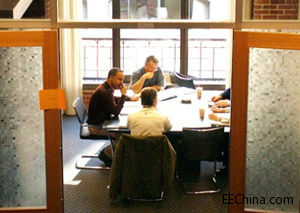盖洛普最新调查显示,全美1亿全职员工中积极投入现有工作的仅占三成,而工作热情缺失每年导致的生产力损失高达4500-5500亿美元。如何打造良好的工作环境和氛围,提高员工的工作效率和专注度?最佳职场研究所研究了谷歌、联邦快递等佼佼者的经验,发现了它们的秘诀。

盖洛普公司(Gallup)《2013年美国职场状况报告》(2013 State of American Workplace Report)显示,在美国1亿全职员工当中,积极投入现有工作的员工仅占三成。报告指出,工作热情的缺失每年导致的生产力损失高达4500-5500亿美元。
那么雇主们,特别是从事多文化背景员工跨国管理的雇主,到底应该如何应对员工的这种倦怠情绪呢?为此,我们向最佳职场研究所(Great Place to Work Institute)首席执行官齐娜•格曼寻求帮助,以更好地了解将公司打造成为最佳职场的秘诀。格曼在帮助雇主思考改善工作环境以及提升雇员满意度方面尤为胜任。格曼曾在人力资源管理协会(Society for Human Resource Management)担任过多年的首席运营官,而且她目前供职的机构曾参与过财富100家最适宜工作的公司(Fortune's 100 Best Companies to Work For)以及最近的全球最最适宜工作的25家公司(The 25 Best Global Companies to Work For)的评选工作。
打造“统一的文化”
格曼表示,“全球各大最佳职场面临的艰巨任务是:在充满多种本土文化的运营环境中打造‘统一的职场文化’。”所有成功的机构或企业都已经掌握了打造这种文化的艺术。这些机构在吸纳人才之后就会去塑造他们的认同感,用企业的文化来同化他们。对于洋基 ( Yankees )这支历史上最为成功的棒球队来说,这种文化被称之为“洋基作风”。作为一个洋基人意味着在场下要有职业素养,在场上要发挥关键作用。全美篮球男子职业联赛(NBA)圣安东尼奥马刺队(San Antonio Spurs)和美国橄榄球职业联盟(NFL)新英格兰爱国者队(New England Patriots)也拥有类似的竞赛运作模式。加入这些队伍意味着接受其文化洗礼,以及接受其塑造和培养,从而融入整个组织体系之中。
格曼指出,谷歌(Google,全球最适宜工作的25家公司排名第一的公司)的文化围绕“谷歌式”这一理念展开:“不管身在何处,员工或所谓的‘谷歌人’都在兢兢业业地工作。他们都知道,“谷歌式”文化就是要做到独一无二,忠于自我,具有合作精神而且能够与比自己更有才干的人和睦相处。”打造“统一的职场文化”还包括制定每名员工都为之努力奋斗的个人目标。
联邦快递(FedEx,排名第20位)会向在客服方面表现突出的25位员工颁发Purple Promise Rewards奖。公司在颁奖仪式上将授予这25名员工胸针和奖品。格曼说:“The Purple Promise代表了联邦快递的愿景和策略,然而更为重要的是,它代表了每一位雇员的承诺,即一如既往地提供卓越的客户体验。”
| |
| According to Gallup's 2013 State of American Workplace Report, only 30% of the 100 million American workers who work full-time are actively engaged in their work. This lack of engagement can lead to lost productivity to the tune of $450 billion to $550 billion annually, the report states.
How can employers, especially those managing workers in multiple countries and cultures, combat the ennui? We asked China Gorman, CEO of the Great Place to Work Institute to help us understand, well, what makes a company a great place to work. Gorman is especially qualified to help employers think about improving their workplaces and bolstering employee satisfaction. Gorman spent many years as the chief operating officer of the Society for Human Resource Management, and her current organization helps produce Fortune's 100 Best Companies to Work For, and more recently, The 25 Best Global Companies to Work For.
Creating "one culture"
"The world's best workplaces face the daunting task of creating 'one workplace culture' from the myriad of local cultures in which they operate," Gorman says. All successful organizations or companies have mastered the art of creating this culture. These organizations take in talented people, mold their identities, and assimilate them into their organization's way of life. For the Yankees, the most successful baseball franchise in history, it's called the "Yankee Way." To be a Yankee means to be professional off the field and clutch on it. Similar sports models include the San Antonio Spurs in the NBA and the New England Patriots in the NFL. To be a part of these teams is to be welcomed into their culture, shaped and enhanced to fit into the larger framework of the organization.
At Google (GOOG) (No. 1 on the 25 Best Global Companies ranking), Gorman says culture is the idea of being "Googley": "No matter where in the world, employees, or 'Googlers' as they are called, work. They universally understand that to be 'Googley' is to be unique, true to yourself, collaborative, and comfortable being around people that may be smarter than you." Creating "one workplace culture" also extends to setting individual goals, toward which every member strives to achieve.
At FedEx (FDX) (No. 20), Purple Promise Rewards are handed out to 25 FedEx employees who go above and beyond in providing customer service. At a ceremony, the 25 employees are recognized with a lapel pin and trophy. "The Purple Promise encompasses FedEx's vision and strategy, but is, more importantly, the promise from every employee that they will consistently deliver an outstanding customer experience," Gorman says.
|
全球范围内的沟通
为了让公司发展壮大,公司高管和员工必须同心同德,形成朝着共同目标奋斗的共识。要实现这一点,坦诚和公开的沟通至关重要。格曼以制造公司庄臣(SC Johnson,排名第19位)为例,说明了什么是优秀的公司-员工沟通。格曼说:“庄臣希望为员工创造公开透明的环境,最近还向每一位员工发放了一本50页的公司长期目标手册。”
这种融合的做法让公司获得了成功,因为它提升了员工与公司之间的信任感。谷歌是世界上最成功公司之一,它也拥有类似的核心价值。格曼说:“每周,谷歌都会举行一个名为“周五派对”(TGIF)的员工集会——“周五”这个词稍微有点问题,因为现在这一集会是在周四举行,这样,亚洲的团队也可以远程参与。世界各地的员工都可以提交问题,让演讲人予以解答。”
打造人际关系
雇主必须继续想方设法利用日新月异的科学技术来壮大自己的公司。全球最佳雇主尽管是因为它们的远见卓识和创造新技术的能力而大获成功,然而,它们获得成功的终极秘诀在于它们深知:归根结底,人际关系是公司脱颖而出的关键所在。格曼说:“这些公司还着眼于利用多种方式来培养人际关系,包括科学技术、全球培训机会、岗位交流和社交网络等。”
欧特克公司(Autodesk,排名第11位)在这方面有独到的做法。格曼指出,这家公司利用创新的岗位计划,让员工理解共同目标并为之奋斗:“欧特克公司通过实施岗位交换项目为员工提供一个面对面的交流机会,在这一项目中,拥有类似职务角色的员工们在特定的时期内互换生活(工作、家和车)。”
SAS(排名第二位)利用科技来维系员工之间的关系;格曼说,SAS的内部社交平台Hub“通过一个社交功能和高管博客来与员工交流,而员工也可以藉此在网络直播和员工集会期间提问或发表评论。”
她认为,这类计划有助于培养员工之间彼此相连的感觉,而且不受工作地域的限制:“这些公司在打造全球员工‘团队’方面有着过人的表现,而借助这些公司所采取的良好措施,即便是身处不同半球的员工也能拥有更多机会进行交流。”(财富中文网)
译者:翔
| |
| Global communications
In order for a company to thrive, both company leaders and their employees must be on the same page, with a sense that they are all working together toward a common goal. Direct and open communication is essential for this. Gorman points to manufacturing firm SC Johnson (No. 19) as an example of excellence in communicating with employees. "SC Johnson, wanting to be open and transparent with their employees, recently printed and distributed a 50-page guide on the company's long-term objectives to each employee," Gorman says.
Such inclusion allows companies to be successful because it facilitates trust between employee and workplace. Being one of the most successful companies in the world, Google also exhibits this core value. "Google hosts a weekly town hall meeting known as TGIF -- which is a bit of a misnomer, since the meeting is now on Thursdays so team members in Asia can remotely attend. Employees from anywhere in the world can submit questions for the speakers to address," Gorman says.
Creating human connections
Employers must continue to find ways to leverage changing technology to allow their companies to prosper. When it comes to the World's Best Companies, their ability to envision and create technology makes them successful, but success ultimately lies in remembering that, after all, human connections are what set a company apart from others. "These companies also keep an eye on how to facilitate human interactions, whether through the use of technology, global training opportunities, job exchanges, social networks, and more." Gorman says.
Autodesk (ADSK) (No. 11) has a unique way of doing this. Gorman points to its innovative job program as a means for employees to understand and be inspired by common threads: "Autodesk offers employees face-to-face interaction through a job swap program, in which employees with similar roles swap lives (jobs, homes, and cars) for a set period of time."
SAS (No. 2) has used technology to maintain employee ties; its internal social platform the Hub "connects employees through a social networking function, blogs from leaders and gives the ability to ask questions or leave comments during webcasts and town halls," says Gorman.
She believes these types of initiatives help to build a sense of connection among employees no matter where they are working: "These companies excel at creating 'teams' out of global employees and have great practices in place to enable more personal interactions among employees who may be half a world away."
|
|




网友评论